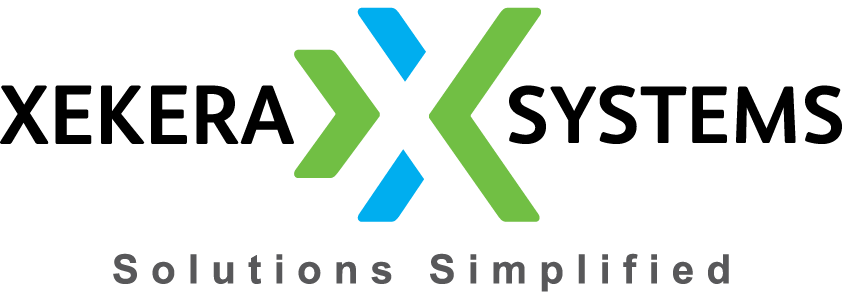Medical software development is mainstream today. More and more institutions and organizations are investing millions and billions of dollars in quality healthcare software engineering to increase employee efficiency, improve patient experience, and streamline the delivery of overall medical care.

Technology-driven healthcare innovation therefore has enormous potential to improve patient services, enable more convenient and personalized care, and create an annual value of $350-410 billion by 2025. Additionally, the telemedicine market size is expected to exceed $130.5 billion by 2025 and in even more in the future.
As you can see, the rate of implementation of software solutions for both the healthcare industry and the pharmaceutical industry is growing exponentially, and the digitalization process will only accelerate. However, it should be noted that most medical organizations do not have experience working with healthcare software solutions. That’s why we’ve gathered everything you need to know about healthcare software development and provided recommendations to help your company or organization benefit from evolving technology.
Definition of healthcare software development
Essentially, healthcare software development covers a vast number of activities aimed at solving problems within organizations in the healthcare sector and the relationships between caregivers and patients. This industry includes clinical services, hospitals, medical equipment providers, medical financing and research centers.
Software development for healthcare systems creates an entire ecosystem where healthcare services gain higher quality and accuracy.
This technological innovation comes in the form of machine learning in healthcare, Big Data and eHealth, creating an opportunity to improve the patient experience and related equipment.
Main Types of Healthcare Software Development
Medical practice management software
This technology is required to maintain clinical workflow and optimize daily operations. Assists with medical record keeping, appointment setting, financial management and accounting activities.
Electronic Health Record Software
The design enables the maintenance and management of patient data in electronic records. Stored reports include allergy information, lab results, patient history, and demographic statistics.
E-Prescribing Software
It is a technology that allows medical prescriptions to be sent directly to pharmacies and drugstores. It strengthens connections within the healthcare industry and serves patient convenience.
Urgent Care
This category of healthcare software brings together numerous applications that help patients get help in an emergency without going to a doctor’s office.
Hospital Management Software
This set of technologies optimizes hospital management. These solutions help with billing, insurance assignment, patient information management and administrative work.
Healthcare CRM
This type of software works with customer management. The main task is to maintain better relations with clients – i.e. better quality of care, contact management and accurate performance reports.
Cost of Software Development in Medical Field
Before you even begin the process of developing clinical software for your organization, it is paramount to estimate the cost of the project so that you can properly define and plan your budget. The cost of medical software development can start from $50,000 to $500,000 and more, and the cost depends on many factors such as complexity, project specifications, length of collaboration with the vendor, etc. We will discuss these factors below to help you better understand. , which affects the final price.
1. Type of Collaboration
First of all, it is important to decide what type of team you want to work with. If you have enough resources, it is possible to hire an in-house team to work alongside you. However, the most convenient solution is to choose an outsourcing team of software engineers who will deliver software of the same quality, but at a significantly lower price.
2. Team Composition
Another factor that determines development costs is team size and expertise. Keep in mind that all the details, such as the number of employees, their experience and skills, and the technological amount of software developers involved in the project, can also affect the final price.
3. Project Complexity
First, the cost will be defined by the type of software or medical website you want to develop. Second, details such as the complexity of the design as well as the number of features you want to include will play a major role in the final budget.
4. Development Timeline
This is directly related to the complexity of software development. The more complex your software, the more time-consuming and expensive your healthcare development project will be.
What Do Healthcare Software Development Companies Do
The increased demand for technological solutions in the medical field has caused the emergence of highly specialized medical software development companies. They offer assistance to NGOs, hospitals and medical schools through a wide set of optimization services. At the same time, the required scope of improvements requires finding a truly reliable software development partner. From the point of view of healthcare facilities, the reason for implementing IT solutions is mainly cost-oriented. A hired software development company should, among other things, solve the task of greater financial efficiency through cost optimization. And here technology can provide data to drive financial KPIs, contingency analysis and client behavior. With these parameters, spending on a healthcare software development company becomes justified. 3 types of services that healthcare software development companies offer:
Healthcare software – all technologies that help manage data and improve the quality of care,
Health applications — mobile solutions for monitoring and communicating about health status,
Custom solutions — task-oriented software or mobile solutions designed directly to the customer’s wishes.
Healthcare software development companies primarily focus on task-oriented solutions – to deliver the most accurate result possible and ensure client satisfaction. However, the ultimate goal of any technology rollout is to create an all-in-one healthcare ecosystem. And so the leading software development company always offers a comprehensive set of services for healthcare organizations – including IT consulting, mobile/web development, cloud technologies and IT outsourcing. While there are still many uncertainties and challenges surrounding digital transformation in the healthcare industry, our expertise allows us to consider different technologies, use cases and solutions for software consulting. Xekera Systems has strong expertise in consulting to solve specific business problems and avoid delivery and implementation pitfalls. Find answers to these and other questions by connecting with our experts.
What Is a Custom Healthcare Software Development
Medical institutions are different and offer different solutions. Therefore, custom healthcare software development appeared to be a tailor-made solution to the client’s needs. Among the various benefits, it can help medical entities create a unified platform for storing medical information. As a result, each applicant can obtain results of higher inclusivity, performance and scalability. In general, clients request custom healthcare software development when they need a specific solution to one of the following problems:
Optimizing work with patient records
Facilitating communication between caregivers and patients
Ensuring seamless creation and exchange of individual health plans and strategies
Providing better accuracy of diagnoses
Reduction of additional expenses
If you have any of these requirements, you can request a custom solution.
Nearshore Software Development for Healthcare
When it comes to the specifics of the healthcare software development industry, it is better to work according to a cost-effective nearshore model. Among other things, this approach makes it possible to reach top developers and to some extent does not respect distance limits. In addition, each country has different economic conditions, which allows healthcare clients to choose between different pricing models. In addition, the nearshore solution accelerates the required technological change. When choosing the right nearshore partner for your healthcare software, make sure the provider has the following capabilities:
To protect intellectual property
To ensure the security of your application
To give you real value for money
Overcome cultural differences caused by a remote business environment
The Specifics of Healthcare Software Application Development
In the field of healthcare, software developers pay considerable attention to creating user-friendly and attractive applications. In today’s smartphone-obsessed world, the development focus on mobile apps has only become apparent. With this solution, the list of exact areas for improvement may include an appointment system, a lab control platform, and a mobile nutrition app. However, the exact appearance and number of functions depends on the sophistication of the design and the specific needs of the client. Achieving the features of a smartphone enriches the quality of medical services that the application can provide. Among the functions of mobile health applications, GPS navigation to the hospital, push notifications about an upcoming medical examination and file sharing via electronic libraries can be included. The classification for medical applications includes the following groups of solutions:
For doctors — automation of drug prescriptions, patient visits and staff communication
For patients – options for online appointments, getting lab results and push notifications
For clinics — control over finances and equipment, quality of service and data flow
For Self Care – Fitness and nutrition tracking apps that help people maintain a healthy lifestyle
For health control — a set of mobile health applications that help in monitoring the main body parameters and the course of treatment
What Are the Advantages of Healthcare Apps
Among the benefits offered by cutting-edge healthcare applications, medical organizations are able to guarantee better quality of service and increase client satisfaction. Software solutions mainly include electronic recording, enterprise content management (ECM), various types of CRM and patient portals. All of these tools provide a digital playground for communicating complaints and suggestions, proposals, leading to greater transparency and immediate responses to issues that arise. Here is a list of specific benefits of custom healthcare software development:
Better synchronization and awareness of the health system to create individual patient plans
Wellness approach
Meeting the growing demand for virtual healthcare services
Improving treatment accuracy
Ability to address population health issues
Increasing consumer engagement
Improving the security and control of the control of important data
Gaining access to advanced technologies and alternative sources of income that promise
Software Development Life Cycle for Healthcare
The specifics of healthcare require adapting software development procedures to its needs. Here are the common steps for guiding the medical software development process:
Requirements setting: gathering all information about the healthcare organization to determine the needs that need to be addressed
Prototype development: performing evaluations and gathering details to design a raw solution
Design and programming: determining the technological solution
Software testing: verifying the absence of errors, bugs and other problems
Final adjustments: validation of the software solution and its delivery to the medical facility
If your task is to create your own healthcare software, the plan of action changes slightly:
Select the target audience — identify the tastes, preferences and typical behavior of clients
Outline the software architecture — create a detailed vision of healthcare IT solutions that meet the needs and requirements of your target audience
Sophisticated UI/UX design – a customized solution requires more attention to the usability and intuitiveness of the application
Protect technology – use encryption to protect data
Integrate software — a tailored solution is always part of the institution’s IT infrastructure
What’s the Future of Software Development in Healthcare
The future of health care is in working on prevention and early treatment, not in solving the symptoms of diseases. In this dimension, custom healthcare software development furthers this progress by creating a space for open communication between patients and doctors. In the near future, we will see greater trust and efficiency in the medical service provided. Above all, this direction strengthens the human-centered approach in healthcare, which means devoting a huge effort to creating value. In this case, patient portals are very promising. They combine numerous advantages of solutions in the field, including optimization of treatment plans, easy monitoring of health progress and availability of online expert consultations. Moreover, these benefits lead to a value-based health care system. From a business perspective, this approach leads to better brand management, increased reputation and better service delivery. The key trends in healthcare software development are:
Focus on self-service and online communication (especially through the patient portal). People are more interested in maintaining health without medical intervention and in contacting their doctors remotely,
Engaging blockchain innovation. This technology significantly contributes to the democratization of the sector. Specifically, blockchain securely exposes internal operations, making the exchange more transparent, trustworthy, and collaborative.
Advanced EMR software. In the new reality, every medical record will become digital and connect all currently separate specialties.
Telemedicine. This innovation creates a close remote connection between doctors and patients, removing all traditional barriers between them.
AI. Technology increases the accuracy of diagnoses and treatment plans.
Although the prospects for healthcare IT solutions seem bright, there may still be some shortcomings. Among other things, the introduced software should dynamically meet security requirements, as this challenge is one of the most common for current digital solutions. In addition, big data creates problems with its management – again a serious challenge for software maintenance.
How Xekera systems can help you overcome the biggest challenge in a healthcare software development project
Xekera Systems offers high-quality assistance in the design and development of various types of healthcare software. If you refer to us, you can be sure that the solution provided will serve you for a long time, successfully integrate into your digital ecosystem and manage data accurately. We provide companies and their employees with cutting-edge transformational solutions and data-driven insights. Are you and your organization ready to change your mindset and get the most out of innovation? Talk to our experts to learn more about the latest healthcare technology and how your business or project can start benefiting from it today!
How to accurately estimate a software development budget?
As we mentioned earlier, the total project cost depends on the type of software you want to build. Whether it’s a wearable app, healthcare management software, or any other type of web or mobile app, the cost can vary widely. You will be able to get a budget estimate if you have already decided on your software development partner. If you want to know the cost of your project at Xekera Systems, contact us and we will analyze the requirements and details of your project and let you know what the estimated budget of your project will be considering all the details etc.




Good post. I absolutely appreciate this website. Thanks!